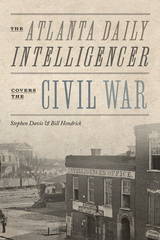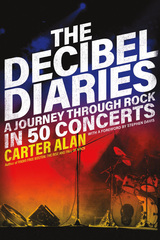
Confederate newspapers were beset by troubles: paper shortages, high ink prices, printers striking for higher pay, faulty telegraphic news service, and subscription prices insufficient to support their operations. But they also had the potential to be politically powerful, and their reporting of information—accurate or biased—shaped perceptions of the Civil War and its trajectory.
The Atlanta Daily Intelligencer Covers the Civil War investigates how Atlanta’s most important newspaper reported the Civil War in its news articles, editorial columns, and related items in its issues from April 1861 to April 1865. The authors show how The Intelligencer narrated the war’s important events based on the news it received, at what points the paper (and the Confederate press, generally) got the facts right or wrong based on the authors’ original research on the literature, and how the paper’s editorial columns reflected on those events from an unabashedly pro-Confederate point of view.
While their book focuses on The Intelligencer, Stephen Davis and Bill Hendrick also contribute to the scholarship on Confederate newspapers, emphasizing the papers’ role as voices of Confederate patriotism, Southern nationalism, and contributors to wartime public morale. Their well-documented, detailed study adds to our understanding of the relationship between public opinion and misleading propaganda


Marcha is a multidisciplinary survey of the individuals, organizations, and institutions that have given shape and power to the contemporary immigrant rights movement in Chicago. A city with longstanding historic ties to immigrant activism, Chicago has been the scene of a precedent-setting immigrant rights mobilization in 2006 and subsequent mobilizations in 2007 and 2008.
Positing Chicago as a microcosm of the immigrant rights movement on national level, these essays plumb an extraordinarily rich set of data regarding recent immigrant rights activities, defining the cause as not just a local quest for citizenship rights, but a panethnic, transnational movement. The result is a timely volume likely to provoke debate and advance the national conversation about immigration in innovative ways.

READERS
Browse our collection.
PUBLISHERS
See BiblioVault's publisher services.
STUDENT SERVICES
Files for college accessibility offices.
UChicago Accessibility Resources
home | accessibility | search | about | contact us
BiblioVault ® 2001 - 2024
The University of Chicago Press









